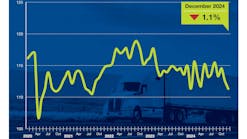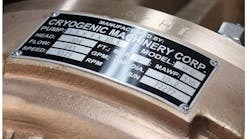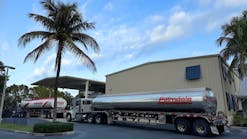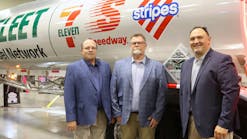Clean Energy Fuels recently opened a renewable natural gas (RNG) fueling station in Davenport, Florida.
The site is now providing RNG to heavy-duty trucking and other fleets operating busy routes around Highway 27, Interstate 4, and the Florida Turnpike area. RNG is made entirely from organic waste, helping to reduce carbon emissions by an average of 300% versus diesel, according to Clean Energy.
The opening of the RNG station aligns with the anticipated introduction of Cummins’ X15N natural gas engine, a breakthrough development for heavy-duty fleets looking to shift to an ultra-clean fuel without compromising on capability. The new engine has been tested by some of the country’s most demanding fleets such as Walmart, Knight Swift, UPS, and Amazon, and is receiving high praise for its power, torque, fuel economy and the ability to reduce greenhouse gas (GHG) emissions.
“Clean Energy has seen a strong demand for RNG fuel from both new and existing customers,” Chad Lindholm, Clean Energy senior vice president, said in a news release. “The Davenport station is in a great location to supply a clean fuel to the many fleets that operate in the central Florida area.
“The investments being made by Clean Energy and many others in RNG production will ensure a steady flow of RNG fuel to this station and hundreds of others that are in our network around the country.”
The new station sits on 3.7 acres of land located at 2450 Access Road in Northwest Davenport, Florida, and includes five fast-fill dispensers for easy in-and-out fueling and 98 time-fill fueling hoses. Clean Energy currently has a network of over 600 fueling stations in North America and is steadily expanding that number.
Clean Energy is also making substantial investments in the production of RNG at dairy farms. Agriculture accounts for nearly 10% of U.S. GHG emissions and the transportation sector accounts for another 28%, according to the U.S. Environmental Protection Agency. Capturing methane from farm waste lowers these emissions. RNG, produced by that captured methane and used as a transportation fuel, significantly lowers GHG emissions on a lifecycle basis when compared to diesel.
This allows RNG to be one of the only transportation fuels to receive a negative carbon-intensity score based on the reduction of emissions at the source and at the vehicle.









